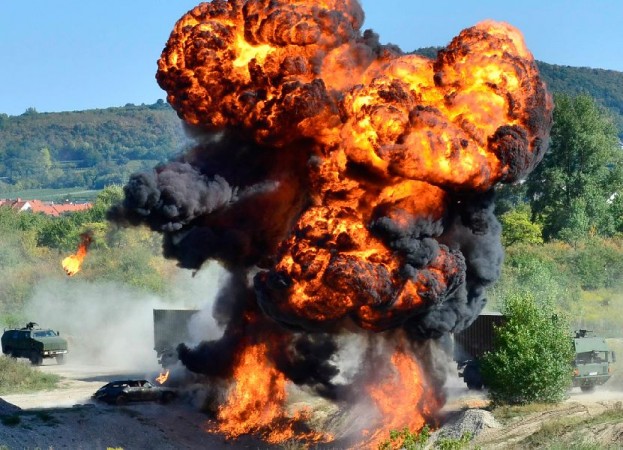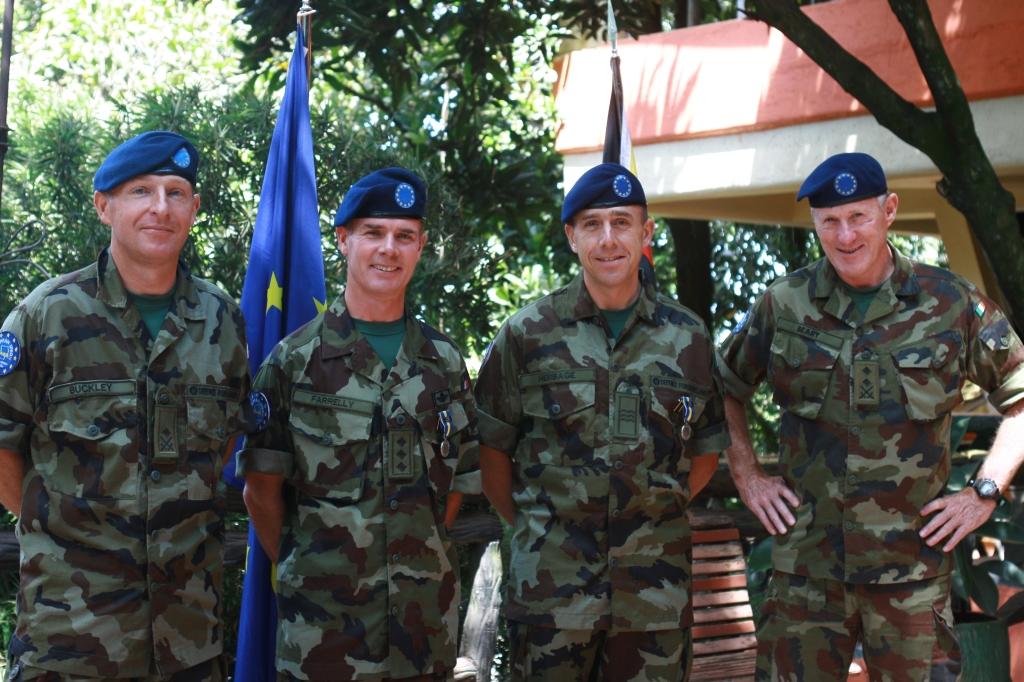Europe bashing. Little letter to my favorite France

(BRUXELLES2, opinion) Le bashing sur “Europe de la défense” est devenu le sport favori de quelques commentateurs, ils éreintent à longueur d’article. Et tous les arguments, alors, y passent : les bons, les mauvais. Ces attaques ne viennent pas d’europhobes ou d’eurosceptiques. Que nenni. Ce sont des gens “bien-pensants”, bien informés, pour qui “casser” de l’Européen, est un sport de détente, comme le tir à l’arc ou le squash. Le côté anti-européen de salon est “très mode” pas à Londres mais bien dans quelques milieux parisiens et provinciaux. On se plait à souligner combien “tout çà est compliqué”, “tout çà ne fonctionne pas”, “n’est pas très sérieux”, “que c’est mort”. Et, au passage, on se moque tout aussi allègrement de ces pays qui restent l’arme au pied”, de “cette Europe de la Défense (*) qui n’existe pas” ou de “ce pooling and sharing qui ne marche pas”. Heureusement la France est là, seule, forte. Cocorico ! C’est facile. C’est un point de vue. C’est un peu la réalité. Mais ce n’est pas tout à fait la réalité…
show, demonstrate, point
B2 n’a jamais eu l’habitude d’être complaisant avec les structures européennes. Nous l’avons démontré par le passé (lire : mali. A certain failure of the concept of battlegroups). Et nous continuerons de le faire (article à paraitre). Il faut pointer le doigt là où cela ne marche pas, où c’est lent, tenter de cerner les divergences. Mais il faut aussi ne pas hésiter à mettre en valeur ce qui marche. Ce n’est pas se dévoyer de dire que le virus Bruxelles réagit (parfois) bien… Oui l’Europe de la Défense est difficile. Oui elle n’a pas une vue unique. Et oui il y a des problèmes, des ratés, des colères (…). Si j’avais le temps de raconter tout ce que je vois et entends, il y faudrait un volume 🙂 Oui, l’Europe se dresse des verges parfois pour se faire battre. Mais il faut être honnête. Il y a aussi des prouesses. Alors que tout ferait pencher la balance dans la division ou inaction, la machine européenne, se réveille.
L’Europe de Napoléon, c’est fini
On peut rêver d’un continent unique, avoir une vision béate d’une Europe rêvée, où tout le monde aurait la même opinion, la même histoire, les mêmes craintes ou les mêmes espérances, serait gentil et voudrait la même chose. Une Europe “Walt Disney” en quelque sorte. Mais ce n’est pas çà l’Europe. On pourrait aussi rêver d’une armée unique, à la française, un chef, un commandement, un équipement, une habitude de faire la guerre, et un consensus national, autour du Roi. Seulement voilà. L’Europe n’a pas été unifiée sous la botte d’un empereur et de rois (ou alors pas longtemps 🙂 ) qui ont dressé un réseau de préfectures et d’administrations compétentes efficaces rapportant toutes à une capitale centralisée. L’Europe de Napoléon, c’est fini depuis 200 ans. Réveillez-vous ! Les 27 (28) pays européens ont des différences — économiques, politiques, stratégiques —. Elles sont réelles et profondes. Et elles ne cesseront pas demain. Ils ont aussi leur fierté, nationale, et n’entendent pas se faire marcher sur les pieds ou se faire montrer le droit chemin (à la française).
Expectations are different
Les passés mais aussi les présents, les trajectoires, les visions, les espoirs sont différents. Dans un pays, comme les pays Baltes ou la Pologne, “occupés” par le voisin russe pendant des dizaines d’années et qui n’ont vu partir le dernier char russe il y a à peine 25 (même pas une génération), on ne peut pas avoir la même approche de ce voisin et de la défense qu’un pays comme l’Irlande qui a conçu son Etat sur une stricte neutralité, ou Chypre dont une partie du territoire est encore occupée par le voisin turc (soit-dit en passant membre de l’OTAN). Entre des anciennes puissances coloniales (France, Royaume-Uni…) et des anciens pays de l’est – où le fonds anticolonial a dominé la classe politique et l’absence de culture africaine réelle – la différence est aussi “objective”.
The decision-making method: not very democratic
La conception même d’Etat, de démocratie, d’engagement militaire est très différente d’un pays à l’autre. En fait, quasiment aucun pays ne repose sur le modèle français avec son chef d’Etat, son chef d’Etat major particulier, et hop on y va… La France a un système de réaction rapide politico-militaire. C’est sa force (lire aussi : The ability to enter first...). Mais c’est aussi sur une faiblesse… Vu de l’étranger, l’hexagone est un peu considéré comme une exception de la démocratie, comment dire … un peu arriérée ! Quasiment aucun Etat européen ne se comporte de cette façon, où le Parlement est considéré comme un croupion de basse classe qui est consulté — c’est-à-dire peut voter — trois-quatre mois après le premier coup de feu. On peut critiquer le modèle allemand d’autorisation par le Bundestag. Il est critiquable et amendable. Mais sa sévérité découle d’une histoire tragique. Le moquer, c’est moquer l’histoire… Et s’il n’était pas respecté, on crierait aussitôt à la résurgence d’une Allemagne prussienne… Ce modèle “allemand” est suivi, peu ou prou, par toute l’Europe : du Royaume-Uni à la Finlande, en passant par l’Espagne, les Pays-Bas ou l’Italie. Consulter son parlement quand on engage les soldats à l’extérieur, est sinon une obligation juridique du moins un point de passage obligé politiquement. Quand ce n’est pas les deux.
(*) On peut avoir une lecture un peu plus politique de cet éreintage en règle. Globalement, il n’est pas possible de critiquer le gouvernement (socialiste) pour avoir lancé l’opération au Mali. Du moins, ce n’est pas concevable pour des partis ou personnes traditionnellement pro-interventionnistes comme l’UMP ou certains Verts (Dany Cohn-Bendit par exemple). Alors on attaque “l’Europe de la Défense”. Comme c’est un projet également au coeur de la politique du gouvernement (le ministre de la Défense JY Le Drian y est très attaché), c’est une manière de critiquer, en creux, le gouvernement. Et tant pis pour l’Europe si elle trinque. Elle était – comme on dit – dans l’angle de tir collatéral…